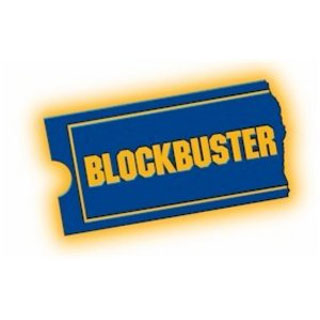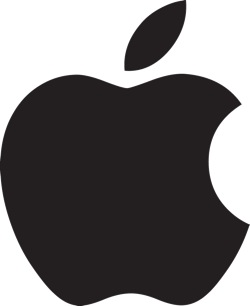 With the mass migration from MySpace to Facebook by a good portion of the social mediarati, the ways we are using the service is certainly changing. Before, the two sites had rather distinct user types. This lead to the sites being used in different ways.
With the mass migration from MySpace to Facebook by a good portion of the social mediarati, the ways we are using the service is certainly changing. Before, the two sites had rather distinct user types. This lead to the sites being used in different ways.
MySpace always seemed to be more casual, and personal use ruled. The atmosphere was less formal, which meant functionality such as personal information really was not necessary. The people you were adding weren’t always necessarily your true “friends.”
Facebook was different. It’s roots as a connection between college students, and later on businesspeople, made it much more formal. Typically, if you were adding somebody on Facebook, you either knew them, were friends with them, or worked with them.
Thus, Facebook by design allowed you to enter personal data such as contact information. A good portion of us, myself included, likely put this information here because we wanted those on our Facebook to have that information if they needed it.
I have tons of people on there that I completely lost contact with and have reconnected as a result of the service, which I am pretty grateful for.
But things are changing. With MySpace out of vogue, that crowd is coming to Facebook. This means that the less formal use of MySpace, including adding people you might not necessarily directly know, is much more commonplace.
There’s just one problem. The way Facebook stores your personal data has not changed. I found this out the hard way, and didn’t realize it until my contact information was used in a stalking incident by a person I had added who I really did not know.
Laying out in the open as long as they were on my friends list was just about every bit of personal information about me, including address, phone number, email, and IM contact information. I was shocked that I had forgotten this data was there, because typically I am very good with maintaining control over personal information.
Facebook doesn’t make it easy to block the information, either. It’s privacy settings left little to be desired.
Essentially, I would have had to go through every single friend, adding them one at a time, to show my information to select people. This led me to think, how many other Facebookers may be inadvertently sharing information they may not be comfortable giving out?
Take this as a cautionary tale. Double check your Facebook to make sure you’re comfortable with the information you’re giving out: otherwise, you might find out the hard way.
Should Facebook do something? Probably yes. The methods to select who sees your data is a bit too cumbersome. Rather than making it a manual process, it might be better for the company to allow you to group friends, and from there allow/deny access to personal info.
I’m curious as to whether or not the ways you use Facebook have changed in this “post-MySpace era.” Have you checked to see how your data is being shared?
![]() In a potentially huge victory for Comcast, the US Court of Appeals in Washington, DC threw out a rule limiting cable companies to under 30 percent of the market. The courts claimed that the FCC failed to take into account competition from satellite and fiber-optic providers when considering competition.
In a potentially huge victory for Comcast, the US Court of Appeals in Washington, DC threw out a rule limiting cable companies to under 30 percent of the market. The courts claimed that the FCC failed to take into account competition from satellite and fiber-optic providers when considering competition.
 Google’s UK headquarters in London were evacuated Thursday afternoon local time after a barbecue on the bulding’s roof caught fire and burned out of control. No injuries have been reported, and damage seems to be contained to the portion of the roof where the barbecue was located. In total, four fire engines and 20 firefighters responded to fight the blaze.
Google’s UK headquarters in London were evacuated Thursday afternoon local time after a barbecue on the bulding’s roof caught fire and burned out of control. No injuries have been reported, and damage seems to be contained to the portion of the roof where the barbecue was located. In total, four fire engines and 20 firefighters responded to fight the blaze. The Swedes are doing all they can to shut down The Pirate Bay, but it just won’t die. A Swedish court ordered the popular file sharing site’s bandwidth provider to cut it’s Internet access or face fines, which was enough to pressure Black Internet into action.
The Swedes are doing all they can to shut down The Pirate Bay, but it just won’t die. A Swedish court ordered the popular file sharing site’s bandwidth provider to cut it’s Internet access or face fines, which was enough to pressure Black Internet into action. Verizon was the first major carrier to do it
Verizon was the first major carrier to do it  Select Motorola phones will gain the ability to stream “thousands” of movies to their devices from Blockbuster’s
Select Motorola phones will gain the ability to stream “thousands” of movies to their devices from Blockbuster’s  There are new allegations in the continuing court battle between Mac clone maker Psystar and Apple: the Cupertino company is now accusing its rival of destruction of evidence: I’m still in shock that the battle has gone this long, but I do digress.
There are new allegations in the continuing court battle between Mac clone maker Psystar and Apple: the Cupertino company is now accusing its rival of destruction of evidence: I’m still in shock that the battle has gone this long, but I do digress. [UPDATE: Yup, Apple is holding an event on September 9th.
[UPDATE: Yup, Apple is holding an event on September 9th.  You might have noticed that Microsoft’s ads for its Bing search engine have become much more frequent on our pages as of late. I’ve noticed elsewhere a marked increase in advertisements for the service, which seems to imply that Microsoft may be staging another offensive in the war over search.
You might have noticed that Microsoft’s ads for its Bing search engine have become much more frequent on our pages as of late. I’ve noticed elsewhere a marked increase in advertisements for the service, which seems to imply that Microsoft may be staging another offensive in the war over search.